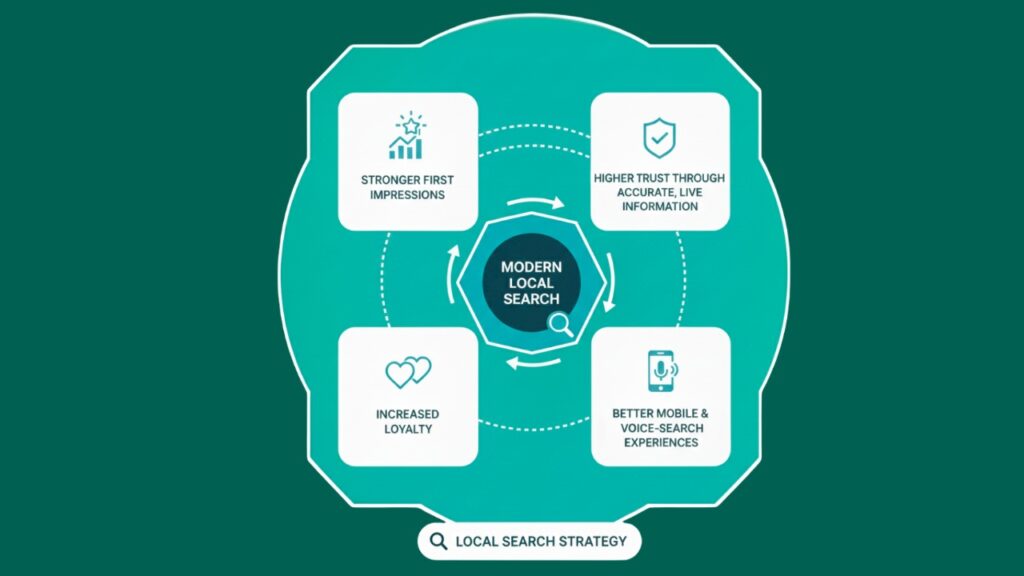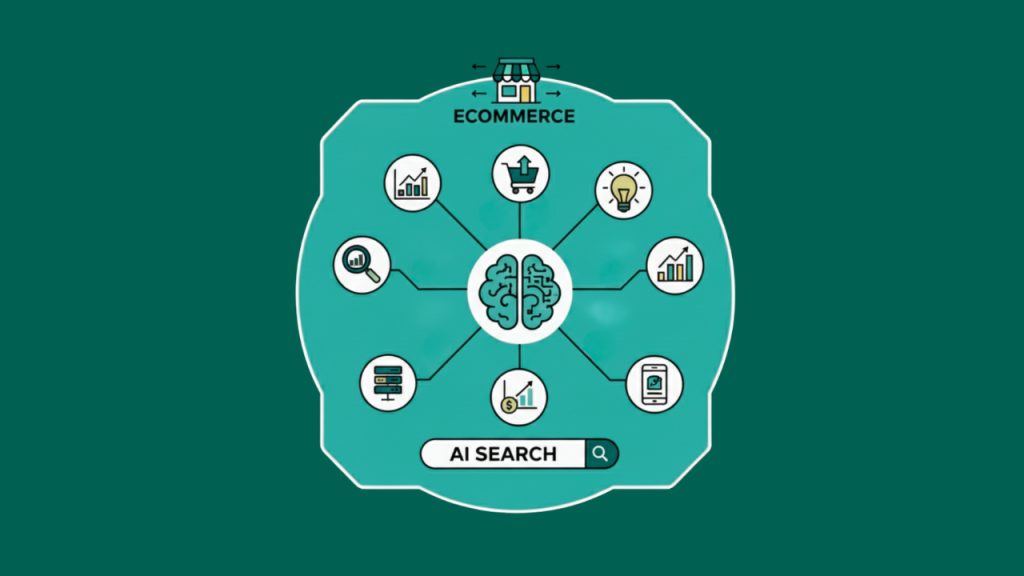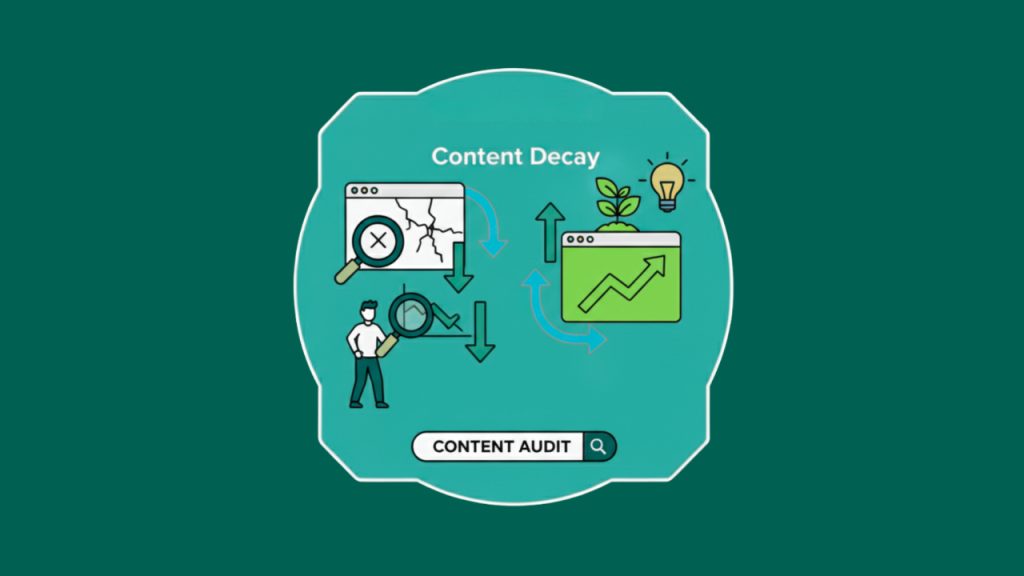Introduction
In today’s competitive market, Pay-Per-Click (PPC) advertising has become a vital part of many marketing strategies — especially for small businesses. With limited time, budget, and resources, traditional advertising can feel like a risky investment. PPC, on the other hand, offers a more controlled approach: you only pay when someone clicks on your ad.
But while PPC may sound straightforward, it can quickly become overwhelming. With multiple platforms, targeting options, and metrics to consider, it’s easy to feel lost.
That’s why, in this article, we’ll explore why PPC for small businesses works so well — and how you can set up a campaign that delivers real results, even with a modest budget.
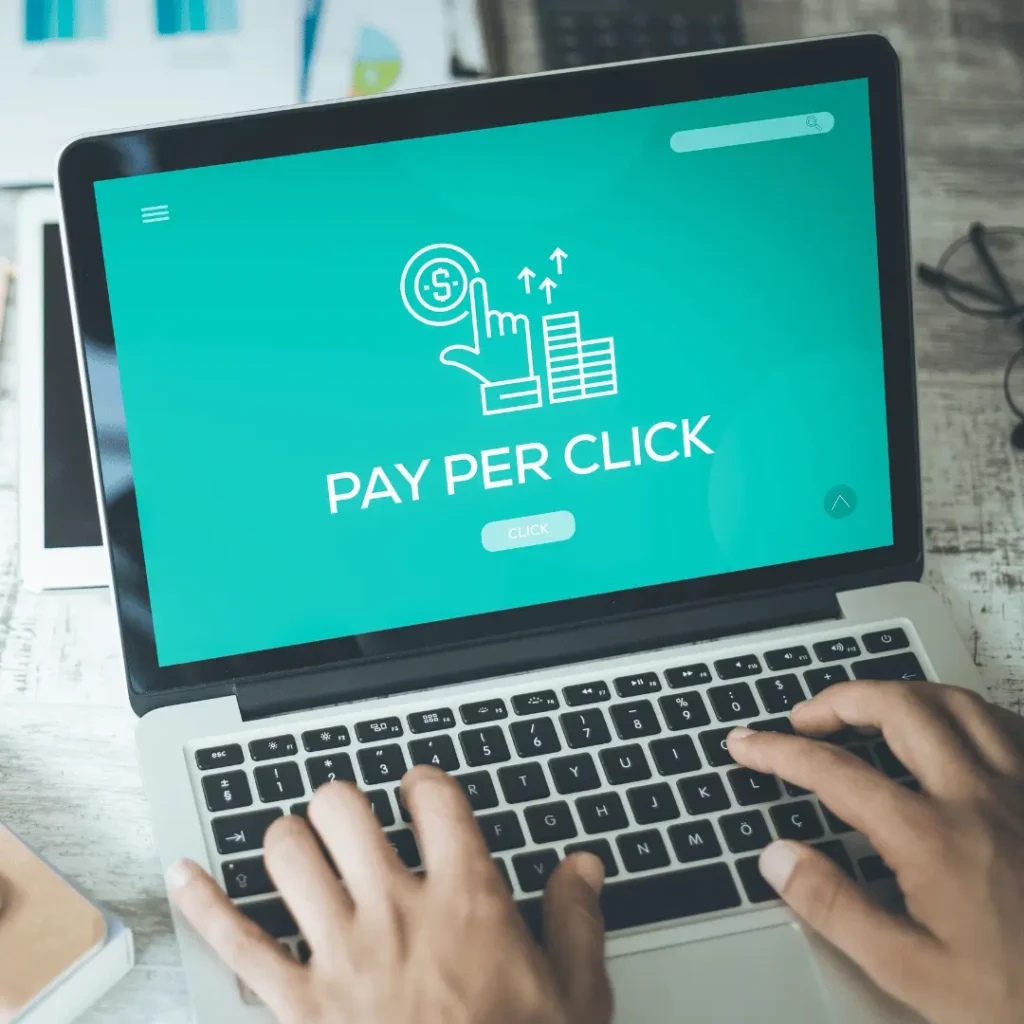
Why PPC Works for Small Businesses
PPC advertising is a powerful tool for small businesses, delivering immediate visibility and scalable growth. It offers flexibility in targeting, precise budget control, and measurable performance—making it ideal for businesses looking to compete in a crowded market. Here’s why PPC works so well:
- Instant Visibility: Your business appears at the top of search results as soon as your campaign goes live, putting you directly in front of potential customers at the right moment.
- Budget Control: You stay in charge of your spending by setting daily or monthly limits that align with your goals and available resources.
- Highly Targeted: Reach the right audience by targeting based on location, demographics, and search intent—ensuring your message connects with the people most likely to convert.
- Measurable Results: Track performance in real time using key metrics like clicks, conversions, and ROI. This data-driven approach lets you optimise your campaign for better outcomes.
- Supports Other Marketing Efforts: PPC works well alongside SEO, social media, and offline marketing. It’s a great way to test keywords, offers, and creatives before committing to longer-term strategies.
Common Challenges Small Businesses Face with PPC
While PPC offers incredible potential, it’s not without its challenges — especially if you’re new to it. Some of the most common mistakes include:
- Wasting budget on broad or irrelevant keywords that don’t attract the right audience.
- Launching campaigns without clear goals or proper tracking, making it hard to measure success.
- Relying too heavily on automated settings, hoping the platform will do the work for you.
The good news? With a bit of guidance and a structured approach, you can avoid these pitfalls and get far more value from your investment.
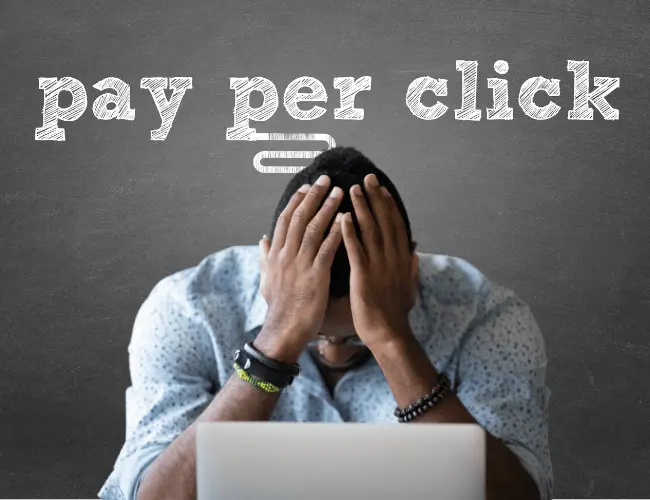
How You Can Make PPC Work For You
To get the most impact out of your PPC advertising, it’s not enough to simply set up a basic campaign. Reliable success comes from creating a strategic approach, regularly monitoring your performance, and refining your tactics. By constantly focusing on and reviewing crucial areas like goal-setting, audience targeting, ad copy, and landing page optimisation, you can transform your PPC investment into a powerful growth engine.
In this section, we’ll dive into how you can make PPC for small businesses work effectively for you. We’ll provide actionable tips that are easy to implement and explore why each of these strategies is essential for maximising your return on investment. By the end, you’ll have a clearer understanding of how to optimise your campaigns and drive meaningful results for your business.
1. Set Clear Goals
Why it Matters:
Well-defined goals are crucial for guiding your PPC campaign. Whether aiming for more traffic, calls, or sales, your goals influence platform choice, keywords, ad copy, and landing pages. Without clear goals, your campaign may lack focus, leading to wasted budget and poor performance.
What You Can Do:
- Define your primary objective (e.g., traffic, leads, sales).
- Align every element of your campaign with this goal.
- Set specific Key Performance Indicators (KPIs) to measure success (e.g., “Increase website visits by 20% by the end of the campaign”, or “Generate 50 new leads within the next month”).

2. Choose the Right Platform
Why it Matters:
Choosing the right platform for your PPC campaign is critical to ensuring your ads reach the right audience. Each platform serves a different purpose, and targeting the wrong one can lead to wasted budget on users who are unlikely to engage with your business.
What You Can Do:
- Research where your target audience spends their time online to ensure you’re focusing on the most relevant platforms.
- Consider the type of ads you plan to run (e.g., search ads, video ads, native ads) and match them with the platform’s strengths.
- Choose the platform that aligns with your business type, location, and target audience to maximise effectiveness.
3. Start Small, with Focus
Why it Matters:
Starting with a small, focused campaign lets you test strategies with minimal risk. By concentrating your efforts, you can quickly identify what works, making it easier to optimise and scale. Spreading your budget too thin across products or locations can cloud the results and slow down success.
What You Can Do:
- Launch a single campaign with a clear goal and focus.
- Target a specific audience and ensure your messaging is concise and relevant.
- Monitor performance closely before expanding to additional campaigns, products, services, or locations.

4. Do Proper Keyword Research
Why it Matters:
Effective keyword research ensures you target terms your potential customers are actively searching for. By focusing on high-intent keywords (e.g., “buy running shoes online”), you attract users ready to convert. Without the right keywords, your ads may not reach the right audience, and you risk wasting your budget.
What You Can Do:
- Use tools like Google Keyword Planner or Ubersuggest to find relevant search terms.
- Prioritise high-intent keywords that indicate strong buyer intent.
- Avoid broad keywords (e.g., “shoes”) that are unlikely to lead to conversions.
5. Write Clear, Compelling Ad Copy
Why it Matters:
Ad copy is your first opportunity to capture attention and persuade users to click. Clear, compelling messaging boosts your click-through rate (CTR) and drives better ROI. If your ad doesn’t quickly address customer needs or offer a clear benefit, they’ll likely skip it.
What You Can Do:
- Highlight your USPs and the benefits of your product or service.
- Include a strong call to action (CTA), such as “Get a Free Quote” or “Book Your Slot Now”.
- Align your ad copy with your keywords and landing page to create a seamless experience for the user.

6. Build a Dedicated Landing Page
Why it Matters:
The landing page is where conversions happen, so it must align with your ad and offer. Directing users to your homepage can cause confusion or distraction. A focused, relevant landing page increases the chances of converting clicks into actions, whether that’s a form submission or a purchase.
What You Can Do:
- Match your landing page to the message in your ad.
- Ensure the page is fast, mobile-friendly, and easy to navigate.
- Include a clear call to action (CTA), like “Request My Free Quote” or “Get My Free Download” to guide users forward.
7. Track Everything
Why it Matters:
Tracking performance is crucial for measuring success and identifying areas for improvement. With conversion tracking, you can pinpoint which ads, keywords, and landing pages deliver the best results. Without tracking, you risk making decisions without data, limiting your ability to optimise for better ROI.
What You Can Do:
- Use Google Analytics and Google Ads conversion tracking to measure performance.
- Track key actions, such as form submissions, phone calls, and purchases.
- Review performance data regularly and adjust campaigns based on insights.
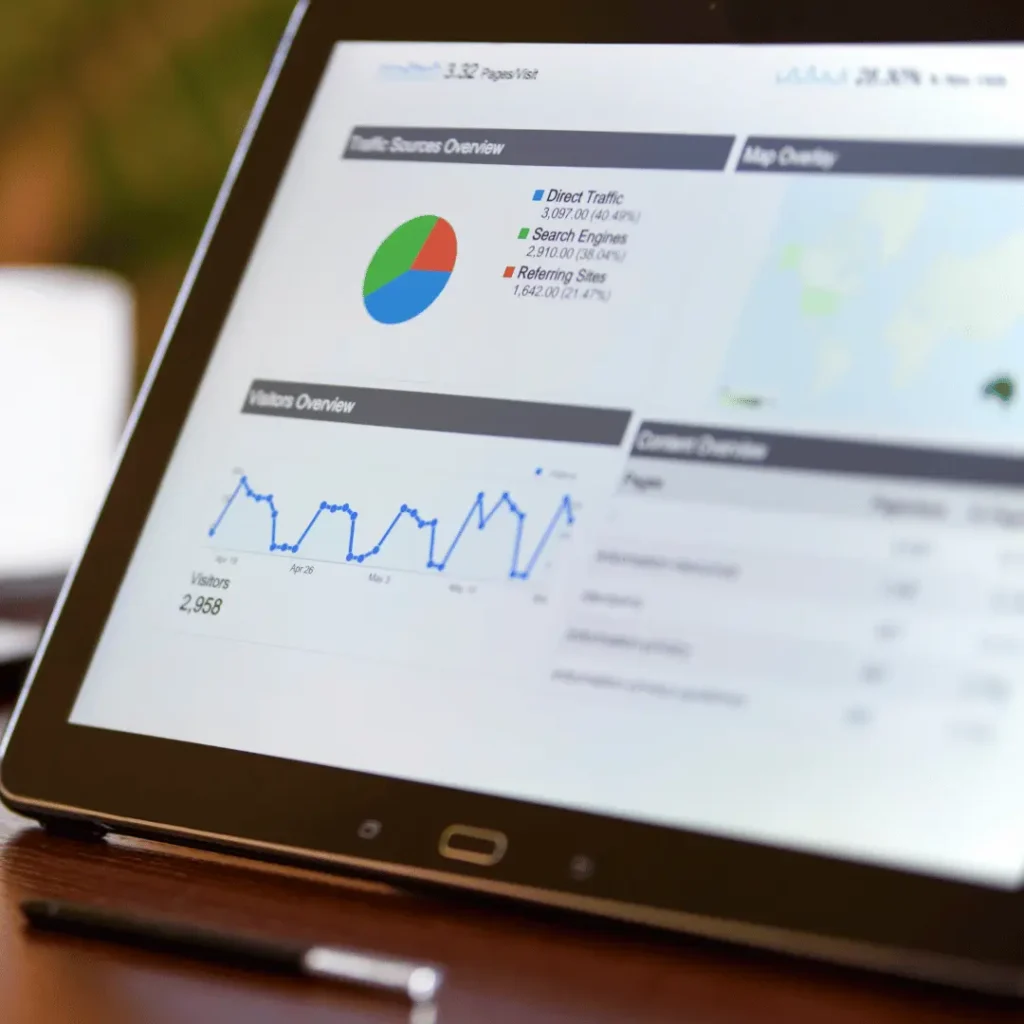
8. Keep Testing and Optimising
Why it Matters:
PPC is a dynamic marketing channel that requires ongoing adjustment. Regular testing (A/B testing) and optimisation ensure your ads, keywords, and landing pages stay relevant and effective. Minor tweaks can have a big impact on performance, so it’s essential to make continuous improvements.
What You Can Do:
- Test different versions of your ad copy, headlines, and CTAs to see what resonates best with your audience.
- Regularly review performance data and optimise your targeting and bidding.
- Implement changes based on performance insights and keep testing new ideas.
When to Ask for Help
If PPC feels overwhelming, or you’re not seeing the results you hoped for, it might be time to call in a professional. Whether you go with a freelancer or digital marketing agency, look for someone who:
- Has proven experience working with small businesses
- Provides clear, jargon-free reporting
- Focuses on achieving goals, not just getting clicks
The right PPC partner should feel like a trusted extension of your team — not a mystery hidden behind a dashboard.

Final Thoughts
PPC advertising gives small businesses a valuable edge in today’s digital marketplace. Just as a well-placed product display draws attention in-store, a targeted ad campaign puts your brand directly in front of potential customers online.
With the flexibility to start small, the data to guide decisions, and the scalability to grow, PPC empowers you to test ideas, reach the right audience, and achieve measurable results. Every click is an opportunity to learn, refine, and improve.
If you’re new to PPC or looking to boost your current efforts, we’re here to help. At Midland Marketing, we support small businesses in building strategic, high-performing campaigns that make every penny count.









